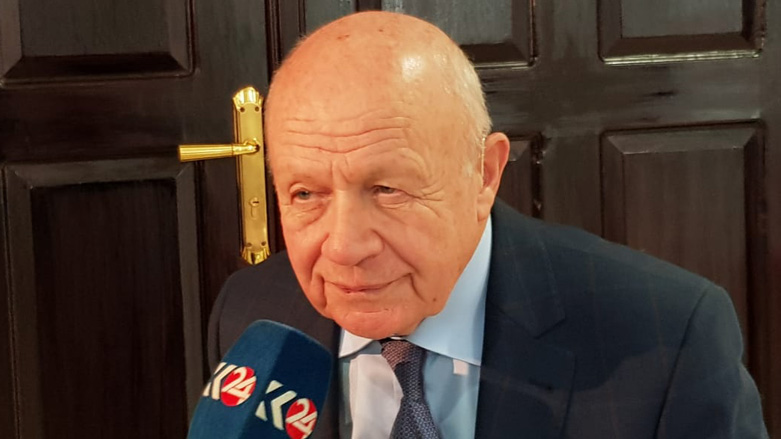Turkish sociologist says Ankara is against Kurds, not terrorism

ERBIL - Renowned author and sociologist İsmail Beşikçi told Kurdistan 24 on Wednesday that, although Turkey claims it is not against ethnic Kurds, it is in reality opposed to Kurdish accomplishment and intends to actively decrease the Kurdish population in northern Syria.
Beşikçi, who spent over 17 years in a Turkish jail for advocating for Kurdish rights in Turkey, made the comments during a seminar at the University of Kurdistan Hewler (UKH), located in the capital of the Kurdistan Region.
“Turkey’s official policy was that the Kurds should not have any achievements during the developments in Syria,” he said.
On Oct. 9, Ankara launched its “Operation Peace Spring” in northern Syria against the Kurdish-led Syrian Democratic Forces (SDF). Ankara considers a key component of the SDF, the Kurdish People’s Protection Units (YPG), to be the Syrian branch of the Kurdistan Worker’s Party (PKK) and designates both as terrorist organizations. The SDF denies links to the PKK and has accused Turkey of cooperating with the Islamic State.
The PKK is an armed group formed by Kurds in Turkey after decades of state repression to fight for expanded rights and has fought in a decades-long conflict with the Turkish military.
“The argument that Turkey uses is that ‘we do not have an issue with the Kurds; we have issues with terror. There is an attempt to establish a terror state [in northern Syria, and we [Turkey] want to preserve Syria’s territorial unity,’” said Beşikçi.
“But in reality, they are doing exactly the opposite,” he said.
“When we look at the time when they occupied Afrin, they did similar actions to what they did with replacement of city mayors in Kurdish cities of Turkey with trustees. Through a political authority, they replaced Kurdish leaders in Afrin with appointees, and they immediately shut down [the] Ahmad Khani institution and other centers which work for Kurdish culture.”
He continued, “In general, there is a paradox between what Turkey says and what Turkey does. Their actions indicate that they are against Kurds because they have banned [the] Kurdish language and Kurdish education and prevented any cultural activity that the Kurdish people want to conduct.”
“After Afrin was occupied in 2018, Turkey turned towards eastern Euphrates and planned for a 30-km deep zone. But that was not a common interest of Russia and the United States of America. Therefore, Turkey was not able to immediately realize its plans,” he said, adding that the Kurdish areas “were occupied, the language was banned, and the names of Kurdish neighborhoods were changed. Turkey is focusing on a Turkish curriculum in areas they have occupied.”
“Hafez Assad tried to change the demography of northern Syria,” he said, referring to the former Syrian leader and father of the current president, Bashar al-Assad. “There were other attempts, too. And today, Turkey wants to complete what Hafez Assad, Nureddin al-Atassi, and others could not finish.”
Beşikçi told Kurdistan 24 after the seminar that Kurdish parties must make concessions in order to jointly work together for Kurdistan. “The Kurds are trying to preserve their Kurdish identity, and for that, they must make concessions to each other, and not for Syria, Iraq or Iran.”

Cengiz Candar, a Distinguished Visiting Scholar at Stockholm University Institute for Turkish Studies (SUITS), told Kurdistan 24 on Nov. 19 that Turkish officials are not being honest when they say that they are not against Kurds, but only against terrorism.
“So, why you are fighting with the Kurdish language then? Is [the] Kurdish language terrorism? Let us be very serious and sincere.”
“The way to do it to resolve the Kurdish question [is] to recognize that Kurds have rights and how those rights have to be implemented. You have to speak at least with their elected representatives,” he said.
Turkey, he argued, “should stop these kinds of practices and go back to the negotiation table.”
Editing by John J. Catherine
